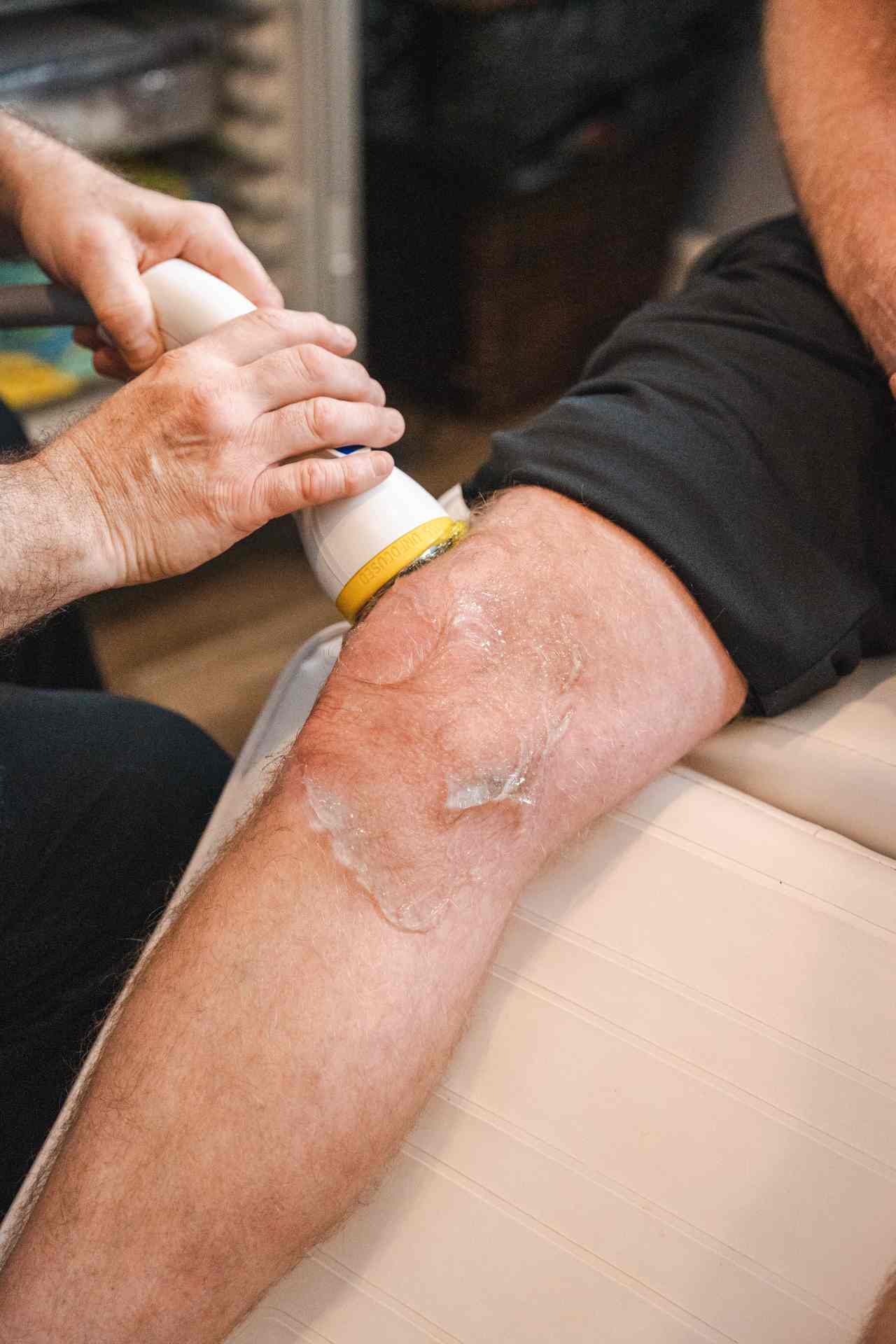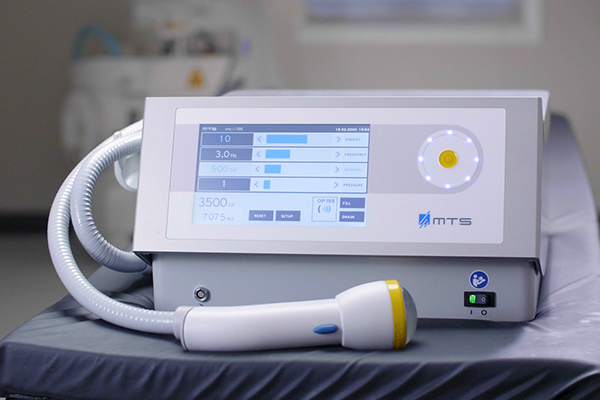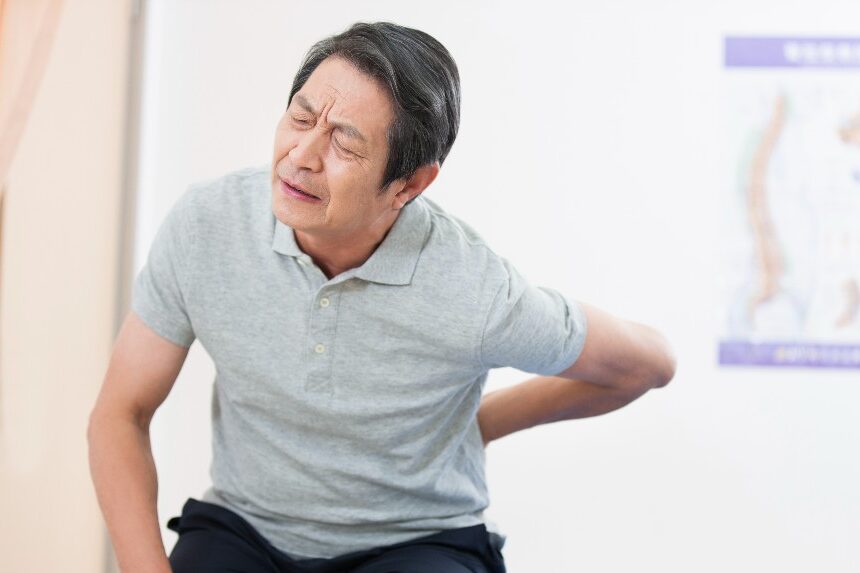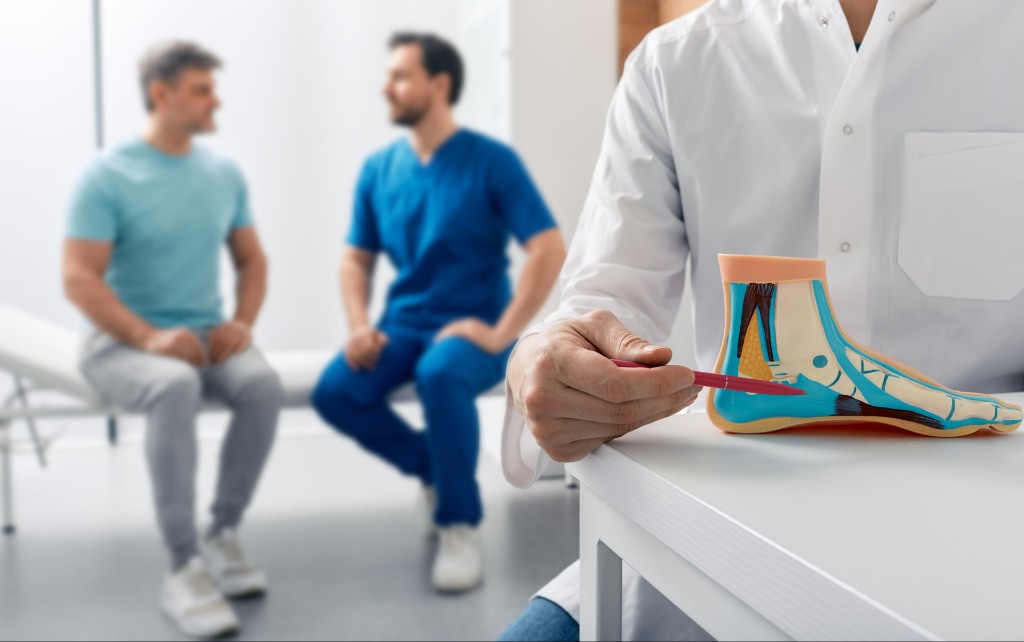Living with inner knee pain can be frustrating. It disrupts your daily activities and can be downright uncomfortable. If you’ve tried traditional treatments and haven’t found lasting relief, you’re not alone. There are a variety of alternative treatments that can help manage your inner knee pain and improve your quality of life.
Let’s explore some options you might not have considered yet!
- SoftWave Therapy: A Drug-Free Path to Healing
- Acupuncture: An Ancient Technique for Modern Pain
- Herbal Remedies and Natural Supplements
- Yoga and Tai Chi: Gentle Movements for Knee Strength and Flexibility
- Advanced Bracing Technology: Support Without Restriction
- Mindfulness and Stress Reduction: The Mind-Body Connection
- Combining Traditional and Alternative Treatments for Inner Knee Pain
- FAQs about Inner Knee Pain
- The Best Shockwave Therapy for Inner Knee Pain
1. SoftWave Therapy: A Drug-Free Path to Healing
SoftWave Therapy is a revolutionary, non-invasive treatment that broad-focused shockwaves to promote healing. The gentle shockwaves for knee pain target the injured tissue, increasing blood flow and accelerating the body’s natural healing process. This can significantly reduce pain and inflammation in the inner knee.
SoftWave Therapy is particularly beneficial for inner knee pain because it can address various underlying causes, such as tendonitis and bursitis. Many patients have experienced significant pain relief and improved mobility after undergoing SoftWave Therapy. Check patient testimonials.
2. Acupuncture: An Ancient Technique for Modern Pain
Acupuncture, a practice rooted in ancient Chinese medicine, has emerged as a valuable tool for managing pain. During an acupuncture session, thin needles are inserted at specific points on the body. This stimulates the nervous system and promotes the release of endorphins, the body’s natural painkillers.
Acupuncture can help with inner knee pain by reducing inflammation and improving blood flow to the area. It can also help manage pain by modulating nerve signals.
3. Herbal Remedies and Natural Supplements
Nature offers a treasure trove of pain-fighting remedies. Certain herbs and supplements have anti-inflammatory properties that can help manage inner knee pain. These include:
- Turmeric: This golden spice contains curcumin, a powerful anti-inflammatory compound.
- Boswellia: This herb has been used for centuries in traditional medicine to reduce inflammation and pain.
- Glucosamine and Chondroitin: These are natural components of healthy cartilage and may help promote joint health.
Important Note: Always consult with your doctor before starting any herbal remedies or supplements, especially if you’re taking medications.
4. Yoga and Tai Chi: Gentle Movements for Knee Strength and Flexibility
Yoga and Tai Chi are gentle forms of exercise that combine movement, breathing, and meditation. These practices can be incredibly beneficial for inner knee pain.
Yoga and Tai Chi improve flexibility and strengthen the muscles around the knee joint, which can improve stability and reduce pain. Specific poses like downward-facing dog and warrior poses can help strengthen the legs, while hamstring stretches can improve flexibility.
5. Advanced Bracing Technology: Support Without Restriction
Modern advancements in bracing technology have transformed how we manage knee pain. Today’s braces, especially active knee braces, are far from the bulky and restrictive devices of the past. Designed with cutting-edge mechatronics, these braces are compact, lightweight, and efficient, offering targeted support to the knee joint. They provide stabilization and reduce pain during activity by supporting the inner knee and enhancing mobility without compromising comfort. This approach not only aids in daily activities but also improves overall knee health by assisting in maintaining proper knee alignment and motion.
6. Mindfulness and Stress Reduction: The Mind-Body Connection
There’s a growing body of evidence that suggests stress can worsen pain perception. Mindfulness practices like meditation and deep breathing can help manage stress and reduce the overall impact of pain, including inner knee pain.
Meditation helps calm the mind and promote relaxation, which can decrease pain perception.
Combining Traditional and Alternative Treatments for Inner Knee Pain

Inner knee pain can be a complex issue, and often the best approach to managing it involves a holistic strategy. This means combining traditional medical treatments with complementary alternative therapies.
Here’s why a holistic approach can be beneficial:
- Synergy: Alternative treatments can work alongside traditional methods to enhance their effectiveness. For example, acupuncture might improve blood flow, allowing medication to reach the affected area more efficiently.
- Addressing the Root Cause: Some alternative therapies, like yoga and stress management, can address underlying factors that contribute to pain, such as muscle weakness or stress-induced inflammation.
- Empowerment: Taking an active role in your healing through alternative therapies can foster a sense of control and improve your overall well-being.
Here are some guidelines for safe integration of traditional and alternative treatments:
- Always consult your doctor: Discuss any alternative treatments you’re considering with your doctor to ensure they are safe for you and won’t interfere with any medications you’re taking.
- Start slowly and gradually: Don’t try to incorporate too many new therapies at once. Introduce them one by one and monitor your progress.
Be transparent with your healthcare providers: Keep your doctor informed about all the treatments you’re using, including alternative therapies. This ensures everyone involved in your care is on the same page.
FAQs about Inner Knee Pain
-
What are the first steps to take when experiencing inner knee pain?
If you experience sudden or severe inner knee pain, see a doctor right away. For milder pain, consider applying ice, resting the joint, and taking over-the-counter pain medication.
-
Can diet really make a difference in managing inner knee pain?
Yes! Maintaining a healthy weight reduces stress on your joints, including your knees. Eating an anti-inflammatory diet rich in fruits, vegetables, and whole grains can also help.
-
What are the signs that suggest consulting a professional for knee pain?
If your pain is severe, persists for more than a few days, or worsens with activity, see a doctor. Also, consult a doctor if you experience swelling, redness, or difficulty walking.
The Best Shockwave Therapy for Inner Knee Pain
Are you looking for safe, reliable, and effective relief from inner knee pain?
SoftWave therapy is FDA-cleared, patented, and nationally recognized for its leading tissue regeneration technology. Unlike other types of high-energy shockwave treatments, SoftWave is the only shockwave therapy on the market that uses true broad-focused shock waves that treat larger and deeper areas of tissue.
Thousands of patients have experienced the benefits of SoftWave for inner knee pain, including:
- Little to no side effects
- Short treatment time
- Quick recovery
- Long-lasting results
Find a SoftWave Therapy provider near you or learn more about SoftWave and whether or not you’re eligible for full treatment today!
New Patient Special
Try SoftWave for just $69 at a clinic near you and learn if you’re a candidate for full treatment




